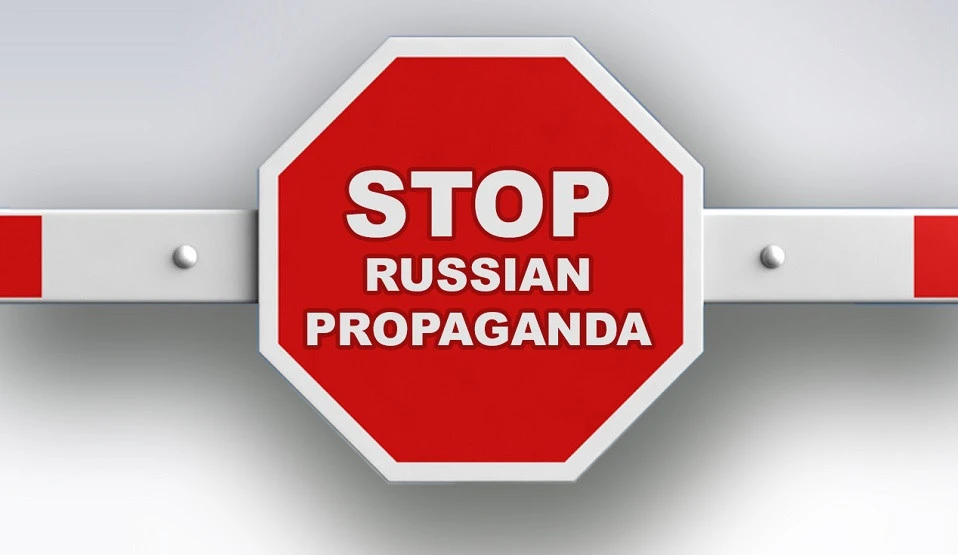
Omerta and Reseau International emerge as new pro-Russian media in Kremlin’s information war
When RT France closed after EU sanctions, Omerta and Reseau International have become the new home of Russian propaganda
The EU imposed a ban on some Russian media in Europe not long after Russia invaded Ukraine in February of last year. Russian outlets, including RT and Sputnik, have been accused of distributing false information and serving as a propaganda tool for the Kremlin. An appeal to the ban by RT France was rejected by the European Court of Justice in July 2022.
On January 21, RT France, the French branch of Russia's state-owned broadcaster, announced it was shutting down.
The closure of RT, however, did not prevent the Kremlin propaganda machine from workiing in France. Pro-Russia propagandists, including some RT journalists, have disguised themselves in international media and authored their stories on new platforms such as Omerta and Reseau International.
Russian disinformation websites network in France
Russia developed methods to circumvent the ban in 2022, and the number of questionable websites designed to promote the same pro-Russian information expanded. To hide it, the Russia-funded resources rebranded their work. They also copied and pasted content from "Russia Today" and Sputnik onto new websites with no obvious links to Moscow.
By approach and 'editorial policy,' these new websites are divided into two categories. The first broadcast unfiltered Russian propaganda. Others simulate a balanced editorial approach by publishing generic world news stories. Nonetheless, they accurately add disinformation and pro-Kremlin propaganda into their news feeds.
Disguised Russian propaganda in international media
Russian propaganda that has been disguised as independent journalism is masterfully displayed by Reseau International. This portal positions itself as a multilingual, independent global media outlet. The website says that it is funded by donations.
However, you might conclude that significant funding is at play based on the number of publications that have been translated into English, German, Turkish, Spanish, Chinese, Italian, and Russian.
A quick analysis reveals that out of 24 news stories on January 17–18, 8 of them focused on the Russia–Ukraine war in a pro–Russian manner, along with 2 stories on Russia's nuclear arsenal, 10 stories that were strongly critical of the West (the EU and the US), and 2 that contained conspiracy theories about the Covid pandemic.
Here are a few headlines from Reseau International from their news publications in mid-January:
There won’t be much left of Ukraine when they finish
Ukraine: Is the hammer about to fall?
Russia with the strongest nuclear deterrent
“Nuclear shield remains the main guarantee of Russian sovereignty,” says Shoigu
Russian Defense announces successful strikes against Ukrainian military command
NATO’s Battle of Ukraine and the occupation of Europe
It looks like the headlines from RT (formerly known as Russia Today - ed.) moved to the outlet which portrays itself as independent media. Together with the Omerta media, launched by the very Russophile reporter Régis Le Sommier, they effectively replaced RT and Sputnik, two Russian global propaganda media outlets that were banned in the EU.
It is hardly surprising that this "foreign" media is frequently cited in Russian propaganda. They are used by Moscow to convey "views from the West."
The usual Kremlin propaganda narratives are present in these media such as "nazis in Ukraine," "Ukraine is losing the war," "Russia is winning," "the world should listen to Russia because Kremlin has nuclear weapons," "Covid was a global conspiracy," "European nations are dependent on the US colonialists," and many more.
Fortunately, this is not typically the case because French readers and viewers are knowledgeable, capable of critical thought, and have access to a variety of information sources.
Psychological warfare behind propaganda narratives
Groups on social media, networks of Russian cultural organizations overseas, and religious organizations all support the Kremlin's psychological and disinformation campaigns.
As a result, stories similar to those on Russian official media are published on thousands of social media accounts, numerous YouTube channels, and hundreds of so-called independent international news websites. It is easy to guess that these psychological and disinformation tactics are directed by a powerful Russian state agency.
Investigative journalists cited the propaganda support of the 2014 GRU-led invasion of Crimea as well as the disinformation campaigns including fake news and conspiracy theories regarding the Covid epidemic as instances of such operations.
According to this plan, the controlled "international" and multilingual websites' editors would simply need to share subjects and storylines with the editors to disseminate the false material to broad audiences.
In this situation, France and the EU require a system to quickly identify and block new websites that promote propaganda and hoaxes in favor of the Kremlin since they pose a security risk.
- News














































